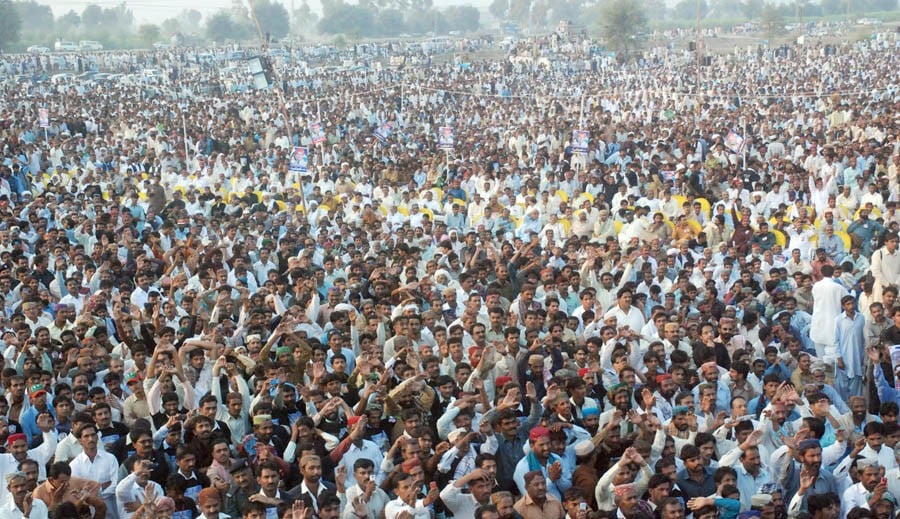
A society fails to grow when people are intentionally kept away from political and decision-making processes

After six decades of independence, we are still a crowd of over 200 million people wandering to find out a common direction. There are numerous contributing factors for this sorry state of affairs.
One leading cause is that people in this country have intentionally been kept away from political and decision-making processes by autocratic and elitist democracy forces to serve their narrow ends. Military rule, spanning over three decades, has depoliticised the people and taken all the possible spaces away from them that are supposed to impart political awareness. The irony is that local government system is introduced in the dictatorial regimes and abandoned in the democratic setup.
Local government system is considered as a nursery for grooming political leadership. Student politics and trade unions remained banned for a long period of time which are indispensable for developing political wisdom among the masses. Resultantly, democratic norms and values could not take roots in society. This is for the same reason that representation of farmers, workers, peasants, religious minorities in parliament is far below satisfactory level.
Under this bleak milieu, people at large remained indifferent towards political discourse of the country. This atmosphere charged with depoliticised framework largely deprived people of confidence in state and its institutions and caused hurdle in creating leadership qualities at grassroots level. There must be serious collective efforts for the development of a genuine democracy and rights based institutions for a prosperous and civilized nation.
It is a matter of great concern that a sizeable portion of population does not have CNICs which is a basic identity of citizenship. It restricts their access to social services and keeps them out of political activities. With inadequate mechanism of civic registration coupled with poor political orientation, citizens are not well placed to caste vote on merit.
Votes in rural areas are generally caste on religious, ethnic and baradri lines which kill the spirit of democracy. It is very unfortunate that in Pakistan democracy is meant only for holding elections and that too on sporadic basis. Democratic values and culture are missing from top to bottom.
Alienation of history prior to 712 and Mohammad Bin Qasim’s invasion of Sindh are also missing links of political history of Pakistan. A common man in street finds it very difficult to relate to Indus Civilization or its remains. Dominance of religious narrative over state and its institutions have also shrunk further the political spaces for the citizens.
When we talk about revolutionary changes it is education that comes at top. This is time for education emergency in Pakistan. We need to revisit our school syllabus on an urgent basis. We must revisit our syllabus to make it more compatible with the needs of the contemporary world. This country needs active and responsible citizens. Political literacy should be a cross cutting theme. For that purpose teachers should undergo capacity-building programmes to enable them to transfer knowledge in a more creative way.
Our education system is full of flaws; even a student of eight class is unable to understand the meaning of national anthem recited daily in an assembly right form class first. Leave alone the procedure of casting vote. This is tip of the iceberg which explains how meaningless our education system is.
Moreover apart from religious teachings, basic ethics, worth of discipline, role and responsibilities of an active citizen, rights of neighbours and traffic rules should be the basic ingredients of primary level curricula. A student should be aware of political role and responsibility right from the beginning.
This is a tall order but doable. This is the age of media and it can bring a lot of difference in society by imparting social and political awareness. Quality of education should be improved and students should be encouraged to analyse things in scientific ways. Mainstream political parties should take steps to establish grassroots level bodies to involve youth in political processes. This is of course a journey of thousands miles but one thing is certain. This is the way leading towards building a responsible and rational society in any sense. Only educated and politically wise nation can approach the issues of terrorism, gender disparity and religious extremism in a positive way.